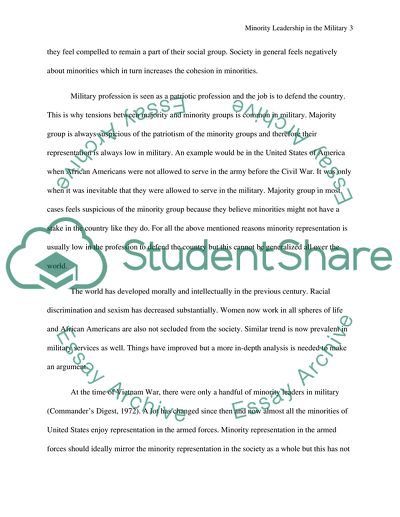Cite this document
(“Minority Leadership in the military Research Paper”, n.d.)
Retrieved from https://studentshare.org/miscellaneous/1579835-minority-leadership-in-the-military
Retrieved from https://studentshare.org/miscellaneous/1579835-minority-leadership-in-the-military
(Minority Leadership in the Military Research Paper)
https://studentshare.org/miscellaneous/1579835-minority-leadership-in-the-military.
https://studentshare.org/miscellaneous/1579835-minority-leadership-in-the-military.
“Minority Leadership in the Military Research Paper”, n.d. https://studentshare.org/miscellaneous/1579835-minority-leadership-in-the-military.


